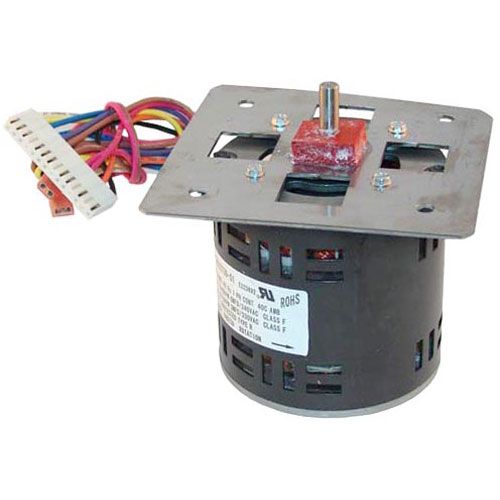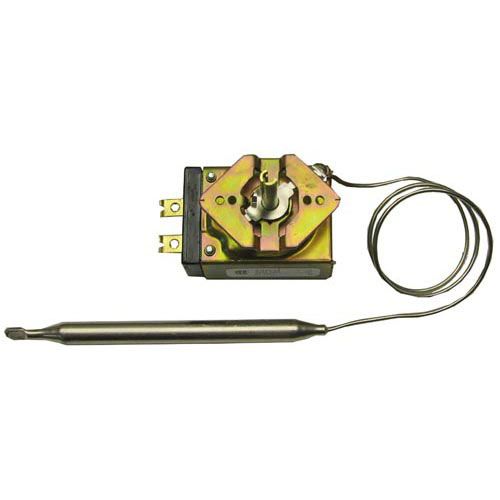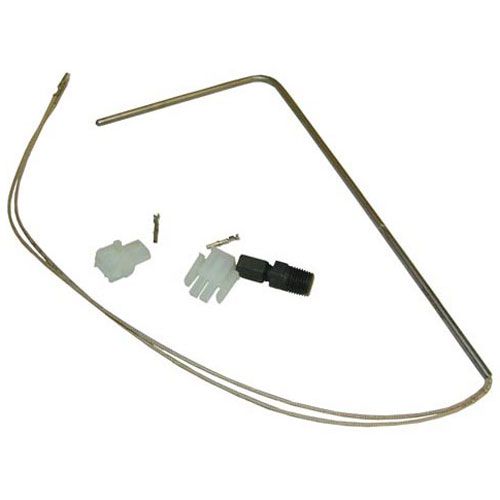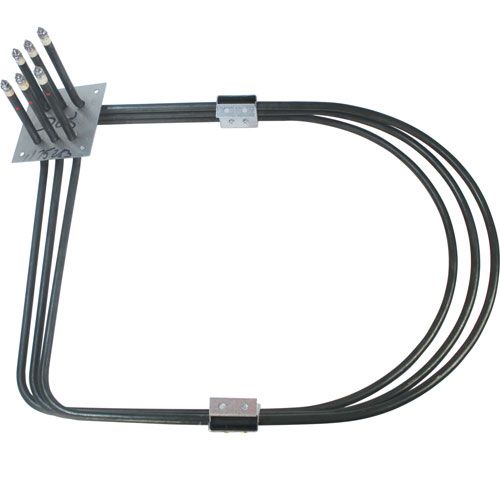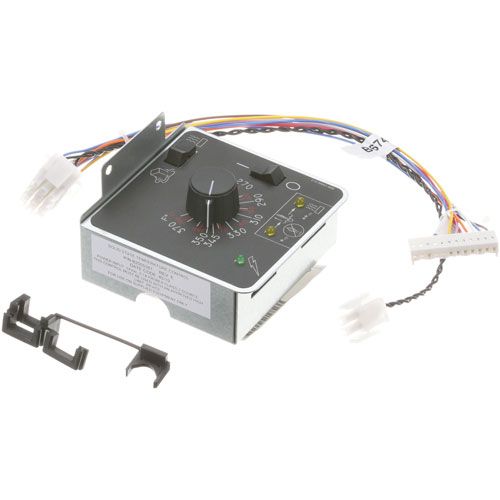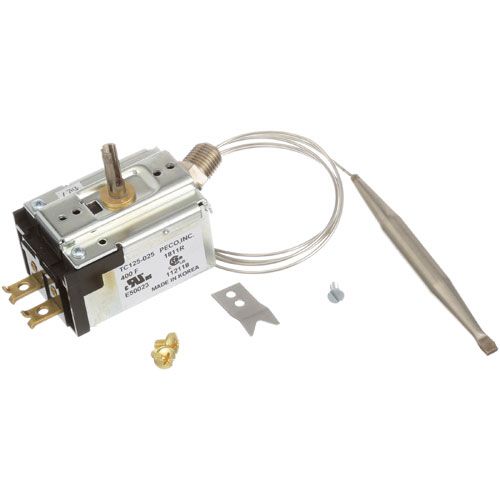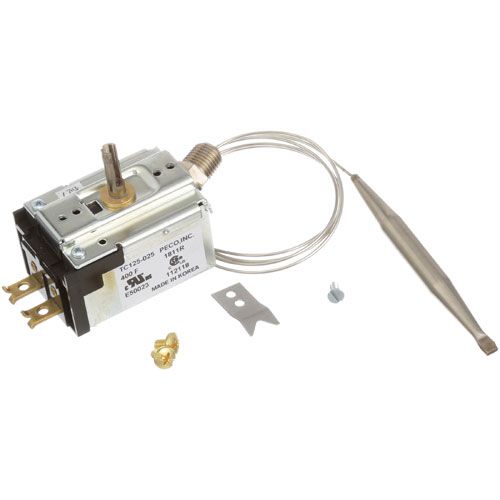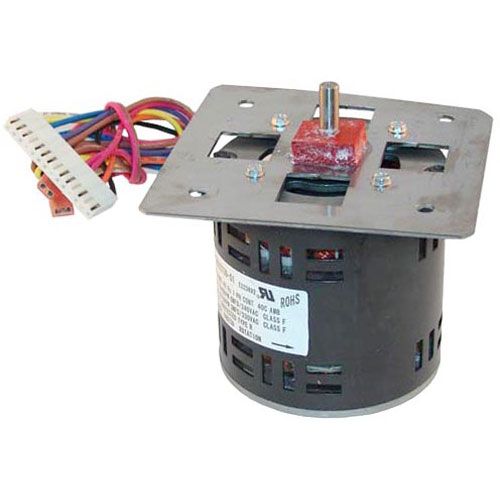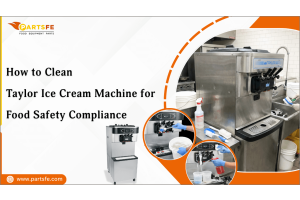How to Replace Your Deep Fryer Filter: Step-by-Step Guide
Maintaining the optimal performance of your commercial deep fryers is essential equipment in commercial kitchens, delivering delicious fried foods with consistent quality. One essential aspect of deep fryer maintenance is the regular replacement of the deep fryer filter. A clean filter contributes to optimal fryer performance and plays a significant role in preserving food quality and flavor. Let's delve into the importance of maintaining a clean deep fryer filter and provide an overview of the filter replacement process.
| Table of contents: What is a deep fryer filter? Different types of deep fryer filters Functions of a deep fryer filter The symptoms of a failing deep fryer filter Step-by-step guide to replacing your deep fryer filter Regular maintenance tips for deep fryers |
What is a deep fryer filter?
A deep fryer oil filter, also known as a fryer oil filter, is an essential component of commercial deep fryers used in food service establishments such as restaurants, fast food outlets, and catering facilities. Its primary function is to remove impurities, food particles, and debris from the frying oil, thereby extending the lifespan of the oil and maintaining the quality and flavor of fried foods.
Different types of deep fryer filters
There are different types of deep fryer oil filters, including mesh filters, paper filters, and cartridge filters. These filters capture and trap solid particles and contaminants, preventing them from circulating in the oil and altering its color, taste, and frying performance
- Mesh filters: Mesh filters are typically made of metal or stainless steel and feature a fine mesh screen that captures solid particles and debris from the frying oil. These filters are durable, reusable, and effective at removing larger impurities, helping to maintain oil quality and extend its lifespan.
- Paper filters: Paper filters are disposable and are designed to be easily replaced to maintain oil cleanliness. These filters are made of paper material with a specific level of porosity to trap impurities while allowing oil to pass through.
- Cartridge filters: Cartridge filters are a more advanced filtration option that consists of a filter cartridge inserted into a filter holder or system. These filters are designed to capture finer particles and contaminants, providing superior filtration performance compared to mesh or paper filters.
Refer to our guide to buy the Best Commercial Deep Fryer
Functions of a deep fryer filter
The filter in a deep fryer serves several important functions to maintain the quality of the frying oil and the food being prepared. Here are the key functions of a deep fryer filter:
- Removal of sediment and debris: The filter captures and removes impurities, including food particles, crumbs, and sediment that accumulate in the frying oil during the cooking process.
- Retention of food residues: A deep fryer filter helps retain food residues and small particles that may break off during the frying process.
- Reduction of oil breakdown: The filter assists in reducing the breakdown of frying oil by removing fine particles and impurities that can contribute to oil degradation.
- Improvement of food quality: By effectively removing impurities from the frying oil, the filter contributes to the overall quality of the fried food.
- Enhancement of safety and hygiene: A properly functioning filter helps maintain a clean and hygienic frying environment by preventing the accumulation of debris and contaminants in the oil.
The symptoms of a failing deep fryer filter
|
Symptom |
Description |
|
Visible debris in oil |
The presence of food particles, crumbs, or sediment in the oil indicates the filter is failing to trap contaminants, impacting food quality and oil longevity. |
|
Unpleasant odors |
Foul or rancid smells from the oil suggest inadequate filtration by the filter. |
|
Inconsistent cooking results |
Variations in frying times, browning, and oil temperature could signal a clogged or malfunctioning filter. |
|
Excessive foaming or smoking |
Ineffective filtration may cause excess foaming and smoking during frying, affecting food quality. |
|
Slow oil filtration |
Reduced oil flow rate and longer filtration times may indicate a clogged or inefficient filter. |
|
increased oil consumption |
Inefficient filtration can lead to faster oil degradation, resulting in higher consumption rates and more frequent oil changes. |
Step-by-step guide to replacing your deep fryer filter
Prepare for maintenance: Turn off and unplug the deep fryer to ensure safety during the maintenance process. Allow the fryer and oil to cool down before proceeding.
Drain the oil: Place a suitable container underneath the fryer's drain valve to collect the oil. Carefully open the drain valve to let the oil flow into the container. If you intend to reuse the oil, filter it using a fine-mesh strainer or cheesecloth before storing it in a clean container.
Access the filter compartment: Locate the filter compartment on your specific deep fryer model. Follow the manufacturer's instructions to access the filter compartment properly.
Remove the old filter: Carefully remove the old filter from the compartment, taking caution of any remaining hot oil. Dispose of the used filter according to manufacturer recommendations or local regulations.
Clean the filter compartment: Use a clean cloth to wipe down the filter compartment, removing any grease or debris. Inspect the compartment for any signs of damage or wear that may affect the new filter's performance.
Install the new filter: Ensure you have the correct replacement filter for your fryer model. Insert the new filter into the compartment, making sure it is properly seated and secure. Follow the manufacturer's instructions for proper installation.
Close the filter compartment: Securely close the filter compartment as instructed by the manufacturer to prevent any issues during operation.
Refill the fryer with oil: Check the quality of the filtered oil or decide to use new oil based on your preferences. Refill the fryer with the filtered or new oil, ensuring it reaches the recommended oil level.
Perform final checks: Plug the fryer back into the power source. Check for any oil leaks around the filter and drain valve. Heat the oil to the desired temperature and verify that the fryer is functioning correctly.
Regular maintenance tips for deep fryers
- Schedule regular filter replacements: Establishing a regular schedule for checking and replacing the deep fryer filter is essential to ensuring consistent performance and food quality. The frequency of filter replacement may depend on the volume of usage and the type of food being fried.
- Monitor oil quality: Regularly monitoring the quality of the frying oil is critical for delivering the best cooking results. Keep an eye on factors such as oil color, smoking point, and the presence of off-flavors or odors.
- Clean the fryer regularly: Routine cleaning of the deep fryer is indispensable for maintaining optimal performance and safety. Clean the external surfaces, the fryer basket, and the interior of the fryer, ensuring the removal of any accumulated food particles, grease, or debris.
Checkout: How to clean a commercial deep fryer
Properly maintaining and replacing the commercial deep fryer filter is crucial for ensuring the performance, longevity, and food quality of a commercial kitchen. By following the step-by-step guide provided, including draining the oil, accessing the filter compartment, replacing the filter, and performing final checks, you can effectively replace the filter in your deep fryer. Additionally, establishing a regular maintenance schedule for checking and replacing the filter, monitoring oil quality, and performing routine fryer cleaning are essential practices to uphold operational efficiency and food quality. At PartsFe, we offer various deep fryer accessories to help keep your fryer parts efficient and in top working condition.
FAQs
How often should you change oil in deep fryer?
The frequency of oil changes in a deep fryer depends on usage and type of food cooked:
- Light use: Every 1-2 weeks.
- Moderate use: Every 1-2 days.
- Heavy use: Daily or more frequently.
How to clean oil from deep fryer?
Allow the oil to cool completely. Use a skimmer to remove food debris. Drain the oil into a suitable container for disposal or filtering.
Where can I buy fryer parts?
At PartsFe, you can explore a diverse selection of deep fryer replacement parts. Vulcan Hart offers a variety of fryers designed to operate efficiently and effectively in high-traffic kitchens.


